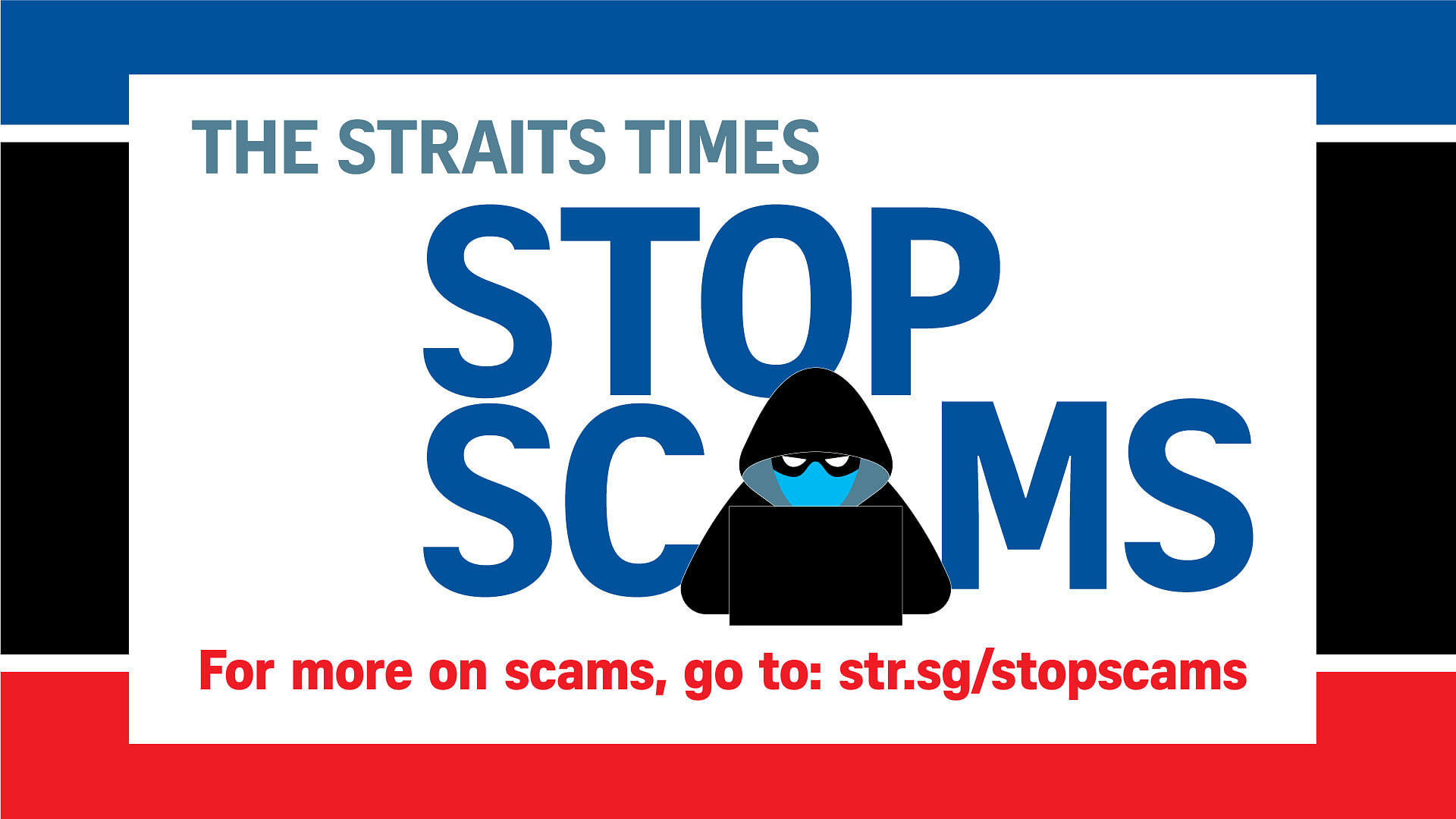Nearly $1 billion lost by scam victims in Singapore since 2016
Sign up now: Get ST's newsletters delivered to your inbox
Cheow Sue-Ann runs through the latest scourge: job scams. Scammers stole close to $1 billion in 5.5 years from 2016.
SINGAPORE - The recent phishing saga involving customers of OCBC Bank has highlighted the epidemic of scams in Singapore, where victims have lost more than $965 million in just over 5½ years, checks by The Straits Times showed.
Scammers pocketed a record high $268.4 million in total in 2020, a figure Home Affairs and Law Minister K. Shanmugam revealed last year in a written response to a parliamentary question on scams.
It was nearly triple the $89.7 million stolen in 2016.
The authorities have acknowledged the difficulties in tackling the problem - many of the perpetrators are based overseas, and when the monies have been transferred, recovery has been hard.
But the police have had some success.
Their Anti-Scam Centre said that of the 7,400 scam reports it received in the first half of last year involving losses of more than $201.7 million, the authorities were able to recover $66 million.
Internet love scams have remained one of the most lucrative scams in Singapore since 2011.
The amount duped from victims has grown from $2.3 million in 2011 to $8.8 million in 2014 and $33.1 million in 2020.
Police said 90 per cent of the scams in Singapore had originated from overseas.
They added that they have worked closely with foreign law enforcement agencies to monitor and share information on emerging scams and conduct joint operations to cripple syndicates.
The police said that last year, the Anti-Scam Division (ASD) of the Commercial Affairs Department worked with the Royal Malaysia Police, Hong Kong Police Force and the police force in Taiwan.
"Sixteen transnational syndicates perpetrating job scams, Internet love scams and impersonation scams were busted," the police said.
ASD oversees the Anti-Scam Centre.
Speaking to the media on Thursday (Jan 27), Deputy Assistant Commissioner (DAC) of Police Aileen Yap said the joint operations led to the arrest of 230 suspected syndicate members. DAC Yap is the assistant director of the Commercial Affairs Department's ASD.
In Singapore, police also arrested and investigated more than 7,000 scammers and money mules last year.
Some are believed to have rented out their bank accounts to scammers or assisted them by carrying out bank transfers and withdrawals.
The Covid-19 pandemic has not slowed down the syndicates, with more victims falling for job scams, the Anti-Scam Centre said.
In the first six months of last year, there were 658 cases of job scams - a 16-fold increase from just 40 in the same period in 2020.
"Scammers are quick to adapt their tactics and scripts to keep up with the current climate.
"During the pandemic, scammers have impersonated government officials to phish for personal particulars from victims," police said.
Criminologist Olivia Choy, from Nanyang Technological University's psychology department, said financial and emotional stress triggered by the pandemic could have made people more vulnerable to scams.
"Such stressors can lead to poorer decision-making, and with more people going online for work and leisure, there is an influx of potential victims for opportunistic scammers," she added.
- Additional reporting by David Sun
Correction note: This article has been edited for clarity.

Six anti-scam principles to follow
The Home Team Behavioural Sciences Centre developed a 6S Anti-Scam Self-Protection Principles to help Singaporeans defend themselves against scams. They are:
- Spot the signs - Recognise the tactics that scammers use.
- Stop and think - Ask yourself or others if a statement, message or job offer could be true.
- Slow down, don't rush - Do not rush into providing your personal or banking details.
- Speak to others - Check with others to verify the authenticity of a claim before doing anything.
- Safeguard personal details and passwords - Never disclose personal information, even if the request appears to be legitimate.
- Seek help - Talk to friends or family members for advice or support if you have been impacted by a scam.
Helplines
- Anti-Scam Hotline: 1800-722-6688 (9am - 5pm)
- National Care Hotline: 1800-202-6868 (8am - 12am)
Mental well-being
- Institute of Mental Health's Mental Health Helpline: 6389-2222 (24 hours)
- Samaritans of Singapore: 1800-221-4444 (24 hours) /1-767 (24 hours)
- Singapore Association for Mental Health: 1800-283-7019
- Silver Ribbon Singapore: 6386-1928
- Tinkle Friend: 1800-274-4788
- Community Health Assessment Team 6493-6500/1
Counselling
- TOUCHline (Counselling): 1800-377-2252
- TOUCH Care Line (for seniors, caregivers): 6804-6555
- Care Corner Counselling Centre: 1800-353-5800


